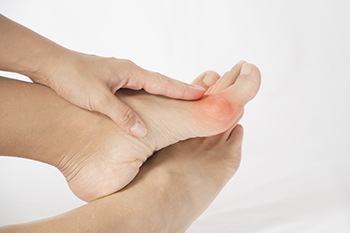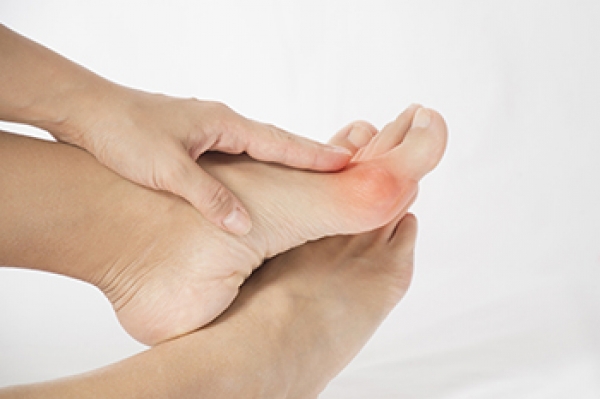
Bunions are a common affliction of the foot in which the bones in the feet are misaligned, resulting in a bony bulge at the base of the big toe. The underlying causes of bunion might be genetic or related to some kind of injury to the big toe. It is common for some individuals with bunions to possibly mistake their bunion for another condition of the foot, such as sesamoiditis. However, the two conditions are importantly different. Although both bunions and sesamoiditis can affect the big toe, sesamoiditis is characterized by the inflammation of the two sesamoid bones that float below the big toe joint. This inflammation can occur as a result of overuse. Bunions, by contrast, are primarily characterized by the bony bulge at the sides of the big toes. If you are someone who believes that they may have bunions or a related condition, it is suggested that you contact a podiatrist to make an appointment.
If you are suffering from bunions, contact Dr. Joshua David Scoll of Pennsylvania. Our doctor can provide the care you need to keep you pain-free and on your feet.
What Is a Bunion?
A bunion is formed of swollen tissue or an enlargement of boney growth, usually located at the base joint of the toe that connects to the foot. The swelling occurs due to the bones in the big toe shifting inward, which impacts the other toes of the foot. This causes the area around the base of the big toe to become inflamed and painful.
Why Do Bunions Form?
Genetics – Susceptibility to bunions are often hereditary
Stress on the feet – Poorly fitted and uncomfortable footwear that places stress on feet, such as heels, can worsen existing bunions
How Are Bunions Diagnosed?
Doctors often perform two tests – blood tests and x-rays – when trying to diagnose bunions, especially in the early stages of development. Blood tests help determine if the foot pain is being caused by something else, such as arthritis, while x-rays provide a clear picture of your bone structure to your doctor.
How Are Bunions Treated?
- Refrain from wearing heels or similar shoes that cause discomfort
- Select wider shoes that can provide more comfort and reduce pain
- Anti-inflammatory and pain management drugs
- Orthotics or foot inserts
- Surgery
If you have any questions, please feel free to contact one of our offices located in Philadelphia, Bensalem, and Fairless Hills, PA . We offer the newest diagnostic and treatment technologies for all your foot care needs.

